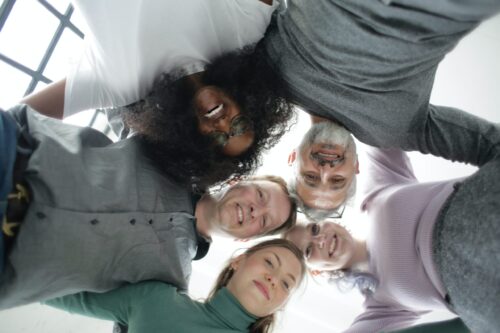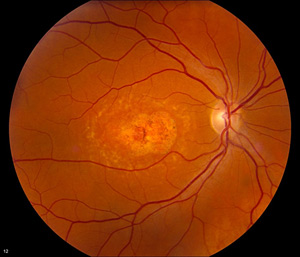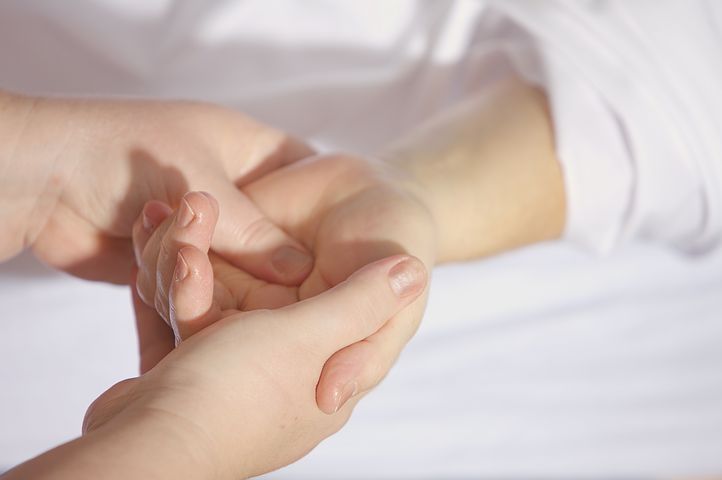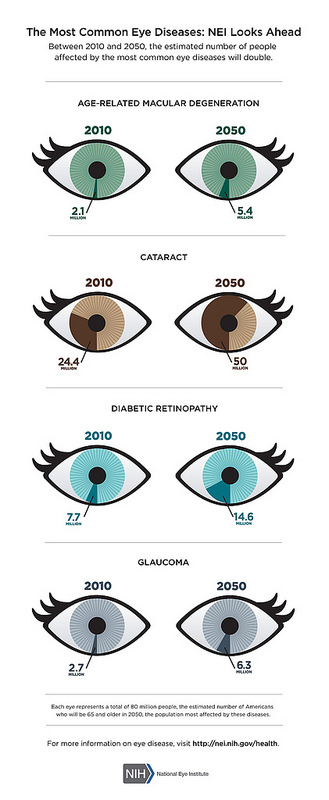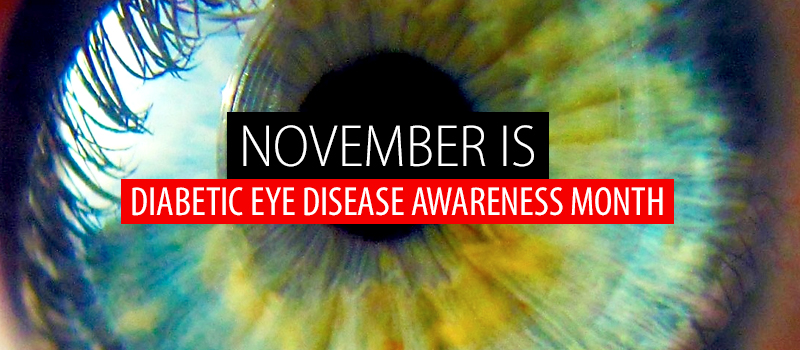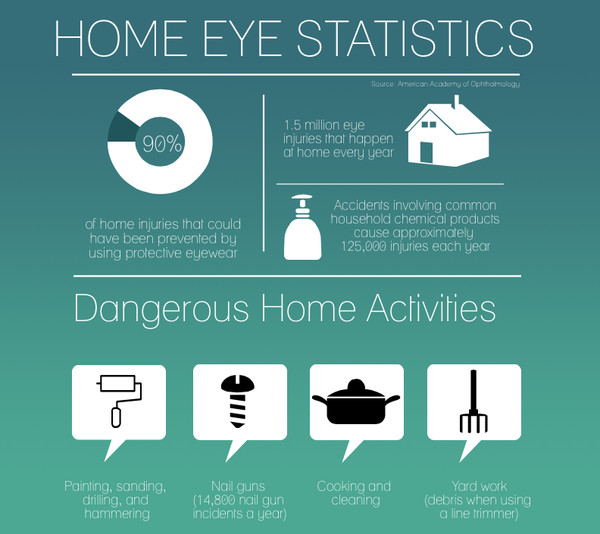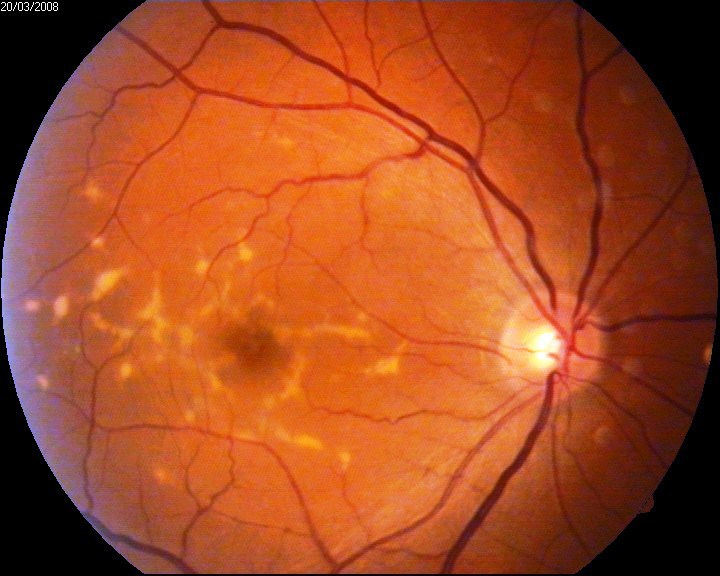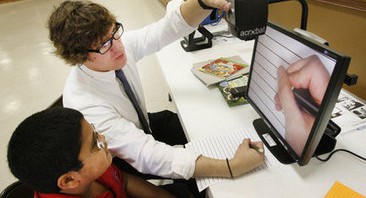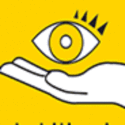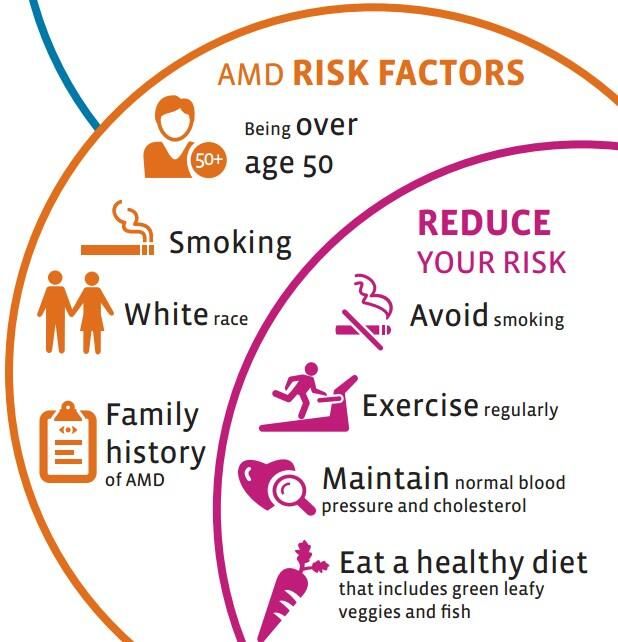Ensight Skills and Curtis Strong Center are open for appointments! We are following CDC guidelines: masks are required, and we are cleaning thoroughly between client visits. Doors are closed to walk ins. Our low vision occupational therapists are also making home visits for those who need and want them. Our low vision support group is… Continue reading Low vision safety during COVID19
Category: Vision Loss
Foundation Fighting Blindness Clinical Research Institute Hosted Workshop for ProgStar, Largest Natural History Study for Stargardt Disease Ever Launched
Reprinted with permission of FFB The primary goal of the landmark study, funded by the Foundation, is to provide companies and researchers with disease-progression data and potential clinical trial endpoints to drive therapy development Columbia, MD – More than 60 leading retinal disease clinical researchers from around the world gathered in Baltimore on June 11, 2018… Continue reading Foundation Fighting Blindness Clinical Research Institute Hosted Workshop for ProgStar, Largest Natural History Study for Stargardt Disease Ever Launched
NEI funded researchers identify 133 genetic variants that predict glaucoma risk
Results inform strategies aimed at preventing vision loss From the National Eye Institute Researchers funded by the National Eye Institute (NEI) have identified 133 genetic variants that predict with 75-percent accuracy a person’s risk for developing glaucoma related to elevated pressure within the eye. Future genetic tests could identify high-risk individuals who would benefit from… Continue reading NEI funded researchers identify 133 genetic variants that predict glaucoma risk
My aching neck: Massage for people with vision impairments
Excerpted from “Insight for Bodyworkers: Connecting with Blind and Visually Impaired Clients” By Mary Kathleen Rose Sept/Oct 2012 issue of Massage and Bodywork magazine Conditions of the eyes range from common eyestrain, myopia (nearsightedness), and presbyopia (age-related farsightedness) to diseases that threaten significant loss of vision, such as cataracts, glaucoma, macular degeneration, and retinopathy. While… Continue reading My aching neck: Massage for people with vision impairments
Excess Zinc May be Detrimental to Eye Health
Ophthalmologists at Boston Children’s Hospital and Harvard Medical School together uncovered information showing that removing excess zinc from the diet helps protect the optic nerve. It also encourages regeneration. The researchers plan to continue their research to determine whether this information can lead to future glaucoma treatments. The ophthalmologists from these two institutions spent… Continue reading Excess Zinc May be Detrimental to Eye Health
Benefits of yoga for people with vision impairments
If you have low vision, you may experience neck pain from straining to see or muscle tension from walking cautiously or feeling the anxiety associated with fear of colliding with an object in your path. In addition, you may experience falls because of difficulty seeing or because diminished vision affects the vestibular system’s role… Continue reading Benefits of yoga for people with vision impairments
Excess Supplements for Vision May Cause Problems
Many older adults take nutritional supplements to prevent or slow vision loss. Eye doctors prescribing such supplements are influenced by results of the Age-Related Eye Disease Study (AREDS2) where researchers found that patients at high risk for visual loss from age-related macular degeneration (AMD) who took Lutein (10 mg) and Zeaxanthin (2 mg) supplements reduced their… Continue reading Excess Supplements for Vision May Cause Problems
Strokes and Vision Loss
[vc_row][vc_column][vc_column_text]Almost half of stroke assessments do not assess vision. A recent University of Liverpool-led review of post-stroke screenings for visual impairments found that while 65-percent of stroke survivors suffer from a visual impairment, 45-percent of stroke units do not assess vision at all. The review states there is an urgent demand for a tool to examine… Continue reading Strokes and Vision Loss
Visual Impairment, Blindness Cases Expected to Double by 2050 in U.S.
The number of people with visual impairment or blindness in the United States is expected to double to more than eigh mtillion by 2050, according to projections based on the most recent census data and studies funded by the National Eye Institute. The researchers estimated that one million Americans were legally blind (20/200 vision or… Continue reading Visual Impairment, Blindness Cases Expected to Double by 2050 in U.S.
November is Diabetic Eye Disease Awareness Month!
Diabetic eye disease is a leading cause of blindness and vision loss. Because of the high risk for this eye disease, all people with diabetes aged 30 and older should receive an annual dilated eye exam. For people with diabetes younger than 30, an annual dilated exam is recommended after they have had diabetes for… Continue reading November is Diabetic Eye Disease Awareness Month!
October is Home Eye Safety Month
Home: the Most Dangerous Place for Eyes Study Shows More Eye Injuries Occur at Home than at Work and School Combined CHICAGO (Sept. 29, 2011) – Home may be where the heart is, but it can also be a dangerous place for the eyes. More than half of the 2.5 million eye injuries that occur… Continue reading October is Home Eye Safety Month
Stargardt Disease Research
Stargardt Disease runs in my family. My mother, Denny, was diagnosed with Stargardt Disease when she was 25-years-old. The research being done is fanatastic, and maybe they will know how to repair the damage from Macular Degeneration in the near-future. Below is a great article about gene therapy being used for Stargardt Disease and Age-Related… Continue reading Stargardt Disease Research
How Can Occupational Therapy Assist You?
Occupational Therapists work with the visually impaired in a large variety of settings such as low vision clinics, schools, hospitals, nursing facilities, the workplace and in people’s homes. They collaborate and work with other low vision professionals to reduce the impact of vision loss and promote independence.
Victim or Inspiration?
Losing my vision was certainly not part of my plan for life, but God had a different plan. And oh what a plan it is. The one thing I see very clearly is the path that led me to where I am today, the Executive Director of the Ensight Skills Center. There were events and… Continue reading Victim or Inspiration?
What Can I Do About Macular Degeneration?
You have control over some of the known risk factors for macular degeneration. If you have macular degeneration, a family history of AMD, or are in the “macular generation” (age 60 or above), you should be particularly attentive to these. However, it is most effective to take these steps well before you are at risk.… Continue reading What Can I Do About Macular Degeneration?
